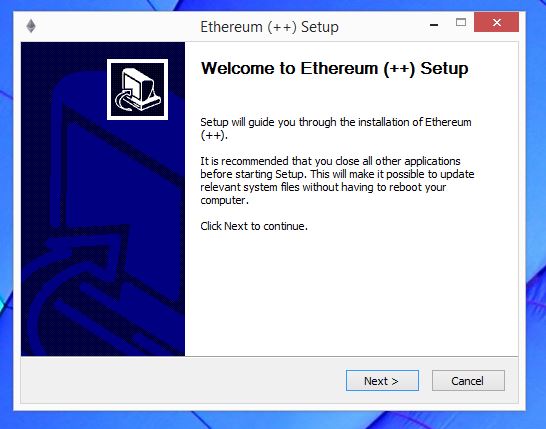How To Become A Ethereum ETH Miner
Just tried it on a small stock set 7950+7970 ETH only 38.1MHS Dual = ETH 35MHS DCR 525.8MHS So you do lose about 8% of ETH mining power to gain the ability to mine DCR at the same time. As long as DCR holds the price or goes up it's ok to do.
If DCR drops in price it makes no sense since the miner will give 2% fee to the developer. *** Watch out, this miner increases temperature by 5 degrees on all cards. Fans need to spin up higher. If you are running hot already this might kill your cards when outside temperature increases. I still need to test the alleged improvement on invalid shares. Can't see decent sized farms switching over to Windows.
Lot's of downtime, lots of headaches. I would imagine you could run the DCR miner alongside ethminer to mine DCR at the same time, although I haven't looked into it, yet. There's nothing about OpenCL that prevents two independent processes from using the same GPU at the same time. GPUs with a lot of cores aren't using them all for ethminer, that I know for certain.
Well it all depends on whether they're greedy for the 20% extra earnings though. That is heaps imo. If it's proven to be stable I'll definitely commit to the switch myself because AFAIK my Windows rigs are very VERY stable and they actually re-connect on their own should any downtime happen while from what I've experienced, ethOS requires me to manually reboot the PC if dwarfpool has some hiccups or server issues. I've never had an instance where my windows miners end up stalling or having errors thus far *Fingers crossed* The only issue is to have to reformat the pc fresh to windows which takes quite a bit of time especially installing the drivers and all. Which ethOS makes super easy. Pros and Cons I guess.
You want the easy way out, you earn less money. Money doesn't come easy.
Ethereum’s is called Ethash. The developers claim that this algorithm is memory hard, which makes it ASIC resistant. While Ethereum is currently proof of work, it is expected to become proof of stake in its next update. Blocks & Block Reward Blocks are generated on average every 12 seconds.
The block reward is 5 ETH. Ethereum Cloud Mining is the largest Ether cloud mining provider. Ethereum cloud mining contracts are available for purchase and the prices are as follows: • 1MH/s = $44 (1 Year Ether Mining) • 25 MH/s = $1100 (1 Year Ether Mining) • 100 MH/s = $4400 (1 Year Ether Mining) You can also read to learn how to mine Ether using Amazon’s cloud servers. Ethereum Mining Profitability As with any cryptocurrency, Ethereum mining profitability depends on many factors. The hash rate of your miners in relation to the total network hash rate will determine your share of earnings.
The Ethereum developers claim that this algorithm is. It is expected to become proof of stake in its next. The block reward is 5 ETH. Ethereum Cloud Mining.
Your earnings can also vary depending on Ether’s price relative to fiat currencies like the US dollar. More efficient mining hardware will also increase profitability. The more efficient your hardware can convert electricity to Ether, the higher your profit margins. An Ethereum mining profitability calculator can be used to determine a rough estimate of your earnings based on your hash rate, the network hash rate, block time, and the price of one ETH. Two examples of calculators can be found at and. Ethereum Mining Pools Although Ethereum has only recently gained popularity, there are already a few Ethereum mining pools.

The two most popular pools are: • • Get an Ethereum Wallet If you’re serious about mining Ethereum,. You’ll need a secure wallet to store your mining rewards. Ethereum GPU Mining It’s possible to.
You’ll need to have some familiarity with the command line in order to get started. Ethereum Mining vs Bitcoin Mining Bitcoin mining and Ethereum mining are quite different. Ethereum’s development team is more centralized and can therefore can plan and implement POW changes. The Ethereum development team currently has plans to change Ethereum from proof of work to proof of stake. Changes to the mining algorithm are much harder to implement with Bitcoin and aren’t likely to happen. Ethereum’s block time is set at 12 seconds per block, while Bitcoin blocks are found on average every 10 minutes.